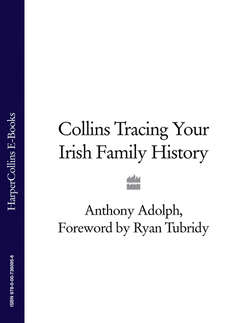Читать книгу Collins Tracing Your Irish Family History - Ryan Tubridy, Anthony Adolph - Страница 31
Wills
ОглавлениеWills were usually written towards the end of peoples’ lives, specifying who was to inherit what. Besides the obviously interesting details of personal possessions, paintings, books, land and so on, they help tie family trees together, sometimes providing details of people who missed being recorded in church, civil or census records. People generally named spouses and children, but you may also find parents, brothers and sisters, nieces and nephews, grandchildren and so on.
Wills tended to be written by people with property. The poor tended not to bother, but this is not always so: if your ancestors were illiterate labourers, they probably didn’t leave wills, but once in a while you might find one.
Wills are a key source for establishing migrants’ origins. You may not be able to find your migrant ancestor’s baptism in Ireland, but if they wrote a will mentioning brothers and sisters, you can look for their baptisms instead. Sometimes, migrants were kind enough to us to leave bequests to relatives still living in Ireland. In these cases, their wills actually tell you where to look for their origins.
To make a will a legally-binding document, it was taken, after the testator had died, to a probate court to be ‘proved’. This usually happened immediately after death, but in some cases it was put off for several years, so a wide search is always advisable. Sometimes you’ll find other records attached to wills, such as inventories of personal goods – wonderful material for broadening the family’s history.
When seeking wills, you will also encounter administrations. When people died ‘intestate’ – without leaving a will – letters of administration could be granted to the next of kin. Administrations give minimal genealogical information, but are still better than nothing.
